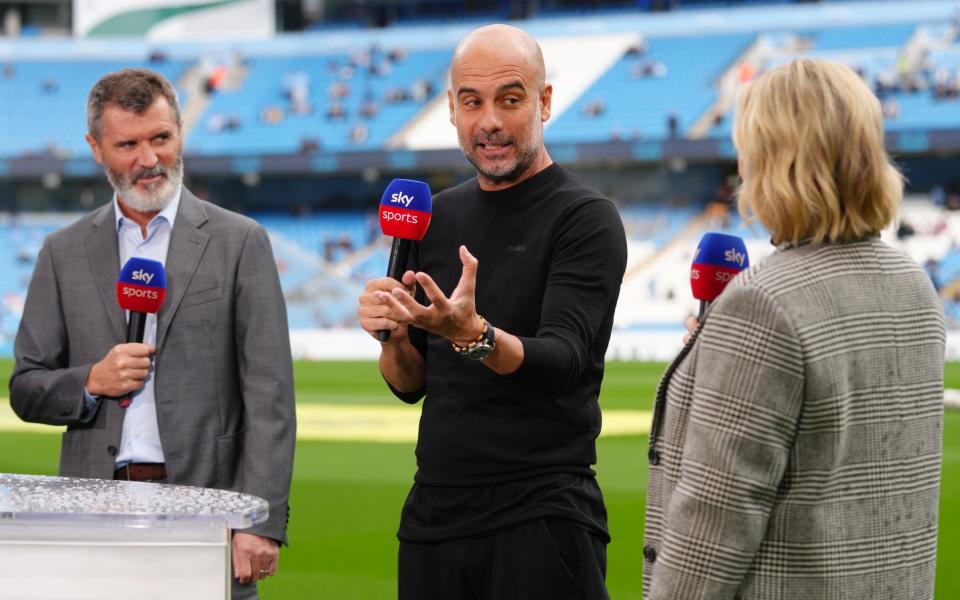Premier League reject Netflix approach for Drive to Survive-style documentary

The Premier League has rejected Netflix’s proposal to make a Drive To Survive-style documentary series about the 20 clubs, it has emerged.
The 20 clubs took the decision at a shareholders meeting in London on Thursday at which they discussed the major issues around the game including an updated version of the rules governing who can buy a Premier League club.
The proposal by Netflix was put to the clubs in September after an approach from the US streaming giant which had previously made the Formula One series – which is now in its fifth season. The concept had attracted some opposition from Sky, owned by the US media conglomerate Comcast, which would have been keen to have the chance to bid on such a proposal given Sky Sports 30-year relationship with the Premier League.
Netflix wanted a three-year deal worth around £5 million per season which was seen as far below what the clubs felt it was worth.
Ultimately, it was decided that there would be no documentary series. Netflix has never bid for the live rights to Premier League action, either the domestic or overseas packages, and current broadcasters have come to expect much more from the 20 clubs in terms of their access to players and behind-the-scenes content.
While Drive To Survive has been credited in some quarters with creating a new generation of Formula One fans, Sky has always maintained that it is its live coverage that has made the greatest impact.
The clubs have also announced the explicit inclusion of government legislation on human rights in the Premier League’s “owners and directors’ test” [OADT]. Any individual sanctioned under the Global Human Rights legislation adopted by the British government in 2020 would be precluded from buying a club. Those currently sanctioned include members of terrorist organisations or connected with Vladimir Putin’s Russian regime.
It is highly unlikely that any of those would have been permitted to buy a club under the previous rules, but this ruling makes it explicit.
There would be no effect on the current Qatari bid for Manchester United, or indeed – were the process still ongoing – the current Saudi-led consortium that owns Newcastle United via the sovereign wealth Public Investment Fund (PIF). The Premier League had meetings with human rights charities in the formulating of the new OADT but it will be government legislation that dictates the rules.
In addition, the Premier League announced that a new independent oversight panel will be included to review OADT decisions. The threshold for an investor in a club being subject to the OADT will fall from 30 per cent ownership to 25 per cent, and the clubs’ chief executives will also now be subject to the OADT.
Amnesty International, with whom the Premier League had consulted, said the new rules did not go far enough. Its economics director Peter Frankental said the new rules were a “step in the right direction” but said that it failed to address sportswashing issues.
“It’ll make little difference unless powerful individuals linked to serious human rights violations overseas are definitively barred from taking control of Premier League clubs and using them for state sportswashing. Would, for instance, a future bid involving Saudi or Qatari sovereign wealth funds be blocked by this rule change? It’s far from clear that they would.
“Merely checking whether people are on an existing UK sanctions list is a very low bar, and the sanctions list reflects the Government’s foreign policy priorities rather than any objective assessment of human rights issues.”
The clubs also discussed the introduction of new semi-automated technology for determining offsides for next season, as was used by Fifa at last year’s World Cup finals in Qatar. There is more than one option in that regard and the clubs will vote on their preference in June. The clubs registered their opposition to the changes made by Fifa to the calendar post-2024 which will also include a much expanded Fifa Club World Cup.
It is also likely that the clubs will vote in June to prohibit betting companies from sponsoring the front of shirts by the start of the 2026-27 season.

 Yahoo Sport
Yahoo Sport 





































